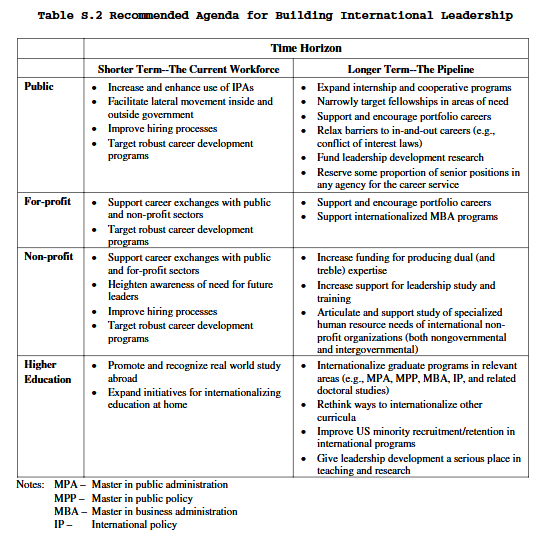
Two Key Competencies for Global Leadership
Featured Image Courtesy of Bikson et al., 2003, p. xxii, Table S.2
Cross-Cultural Competence (Bikson et al., 2003): the ability to interact with individuals from cultures other than one’s own effectively (as per their customs, values, and circumstances). It encompasses multicultural sensitivity, which is not acquired through study but through life experiences and living/working in another culture, and ideally, learning a second language. According to Gough (2022, p. 2, para. 1), diversity among multicultural teams contributes to increased creativity and serves as a “basis for synergy.”
Global Scope of Practice (Bikson et al., 2003): Leaders must see the big picture that situates their organization in an international context. This may involve considerations related to what it actually means to work in different locales and what it means to tackle international markets, politics, and cultural practices. In a global marketplace, adaptation and mastery of the learning curve are of utmost necessity to remain efficient and effective as leaders managing “task and relationship processes” (Gough, 2022, p. 3).
